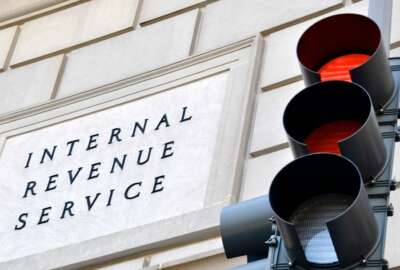
Gift cards for the IRS? Probably not!
The IRS has been publishing “the Dirty Dozen” for much of the past twenty years in an effort to advise taxpayers and tax preparers of scams and schemes that are...
If an IRS agent calls you at home or office and asks you to send him or her a gift card, don’t do it! Even if you owe money, that is not the correct (or legal) way to get back in Uncle Sam’s good graces!
By the same token if someone from a nature fund or a save-the-kittens group asks for a donation, check them out BEFORE you send a check.
When a company advertises it can reduce your tax bill by tens of thousands of dollars put a cold cloth on your head and lie down until the urge to respond is gone.
All of the above, plus some things you wouldn’t dream up, are part of the IRS’s Dirty Dozen list. It’s part of the agency’s effort to protect taxpayers, tax preparers and corporations from scams ranging from the incredibly stupid to brilliant. All designed to take you for all they can get. Even if it’s all you got!
And if you think some of the long-distance scams you see on the Dr. Phil show: She (or he) wires money to soulmate they’ve never met so they can pay kidnapper’s ransom, get their mother a new body part, or repay a small debt to free millions of dollars from frozen account. The fact is it happens every day. Sometimes to otherwise savvy people. Like you, maybe?
So what are the scams and schemes on the Dirty Dozen list? Could you spot them? Or have you ever been had?
To talk about the ploys used to trick people we’ll be talking to tax attorney Tom O’Rourke. He’s a former IRS attorney, and he’s my guest today on our Your Turn radio show: 10 a.m. EDT on www.federalnewsnetwork.com or in the D.C.-Baltimore area on 1500 AM.
Most of us think we are too smart to be conned. But even geniuses have fallen for a ploy. Full disclosure: For three consecutive years on my first job I joined a bottle club. All I had to do was buy three semi-expensive Bourbons. Pass them on to the bottle club chain and wait while dozens, potentially hundreds of bottles, arrived at my apartment door. It cost me nearly a week’s pay, but the payoff was worth it. Almost. The thing is I’m still waiting for the happy clinking sound of a mass delivery! And I’m beginning to think I was had. Maybe. In any case Tom is an expert on what the scams look like and how to avoid them. Here’s his lead in to today’s topic, The Dirty Dozen:
The IRS has been publishing “the Dirty Dozen” for much of the past twenty years in an effort to advise taxpayers and tax preparers of scams and schemes that are in some way related to taxes. It is a list of questionable (or fraudulent) transactions designed to gain access to your money.
In recent years, the items on the dirty dozen lists have included bogus calls, texts, emails and online posts. A common scam during the past two years includes online text messages or emails about your entitlement to stimulus payments that often include a link. The link promises to help you get all you are entitled to under various stimulus programs. Accessing a link in such a message may compromise any security measures of your computer system.
Phone scams often include threats that the IRS or local law enforcement agents will arrest you if you do not immediately remit payment by way of a gift card. The IRS cautions that it always initiates contact by mail and never demands payment by gift card. You always have an opportunity to appeal any determination that you owe additional tax.
The dirty dozen also lists strategies that are many times fraudulent that offer to help you avoid taxes. Some of the more common tax avoidance schemes identified in the current list of the dirty dozen include:
- Captive insurance arrangements.
- Charitable remainder annuity trusts.
- Offshore pension arrangements.
- Monetized installment arrangements.
- Conservation easements
- High-income taxpayers who simply do not file tax returns.
- Companies that promise to settle your tax liabilities for pennies on the dollar.
All of these schemes involve transactions that on the surface involve legitimate transactions. They typically offer very significant tax benefits, but little else in the way of economic benefits.
Always exercise caution in investing in any transaction that promises benefits that sound too good to be true.
Copyright © 2025 Federal News Network. All rights reserved. This website is not intended for users located within the European Economic Area.
Mike Causey is senior correspondent for Federal News Network and writes his daily Federal Report column on federal employees’ pay, benefits and retirement.
Follow @mcauseyWFED




